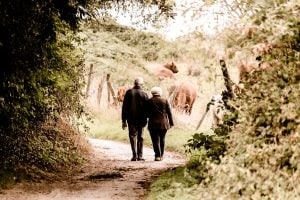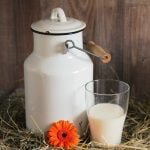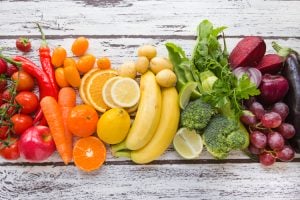 The aging process is a natural state. It goes without saying that it cannot be completely inhibited, but some actions may delay its unwanted consequences.
The aging process is a natural state. It goes without saying that it cannot be completely inhibited, but some actions may delay its unwanted consequences.
Many things change after the age of 65. So what can you do to compensate for the effects of passing time?
The word CHANGE should be synonymous with old age. For many, virtually everything changes. The appearance and composition of the body, motor and intellectual abilities change. Willingness and motivation to perform basic activities that previously gave joy decreases. The body’s strength and endurance are noticeable, which can cause many difficulties.
Energy demand varies with age. As you know, basic metabolism depends largely on the level of muscle tissue in the body. In older people, the processes that take place in the body lead to a loss of muscle mass and strength. Energy requirements should therefore be reduced accordingly, taking into account also the level of daily physical activity and physical capabilities of the senior.
It is worth taking care of good sources of calcium in the senior’s diet. It is an essential component of bones and cartilage, it participates in the mechanism of muscle spasms. Elderly people should often consume dairy products, especially fermented dairy products, which additionally have a beneficial effect on the condition of the intestinal microflora.
The basis of the diet should be vegetables, especially raw. They can also be boiled, wiped, depending on preferences and the condition of the teeth. In the elderly, nutritional deficiencies can be observed due to the reduced consumption of vegetables and fruits.
That is why it is important to eat a variety of foods and provide a whole range of vitamins and minerals. Particularly important are green leafy vegetables, which provide folic acid and vitamin K. Tomatoes – a source of lycopene, which is highly anti-inflammatory. Beets – positively affecting the circulatory system.
 Fruit should be limited to a few pieces per day due to the high content of simple sugars. Older people have an increased risk of type II diabetes, including through reduced glucose metabolism. Due to this, it is also recommended to stop using sugar, sweeteners and honey. It is also worth convincing the senior to eliminate sweetened drinks and excessive consumption of fruit juices.
Fruit should be limited to a few pieces per day due to the high content of simple sugars. Older people have an increased risk of type II diabetes, including through reduced glucose metabolism. Due to this, it is also recommended to stop using sugar, sweeteners and honey. It is also worth convincing the senior to eliminate sweetened drinks and excessive consumption of fruit juices.
It is worth including whole-grain cereal products containing more minerals than purified products and especially due to the high content of dietary fiber in the daily diet of the elderly, which positively affects the functioning of the intestines, regulating, inter alia, the rhythm of bowel movements.
It is important to eat fish regularly! At least 3 times a week, they should have a senior on their plate. They are a source of Omega 3 acids that affect the nervous system. They will support memory, associating facts, and thought processes.
Poor teeth cannot be an excuse for giving up nuts, seeds and seeds. A good way of hardness and size of nuts can be chopping or grinding. In this form they should be added to meals at least 2 times a day.
The replacement of animal fats (butter / lard / bacon / fat) with vegetable oils (olive oil / rapeseed oil / linseed oil) will have a beneficial effect on the body, including blood vessels – the entire cardiovascular system and the immune system, supporting the body’s immune processes.
Restricting salt significantly will be an additional factor protecting against hypertension. Instead, add herbs that will make your dishes more attractive and turmeric that has more anti-inflammatory properties.
To delay the processes of striving for the loss of independence by the senior, it is worth implementing daily physical activity tailored to your health and capabilities. Movement will strengthen the body’s condition and delay the processes of skeletal muscle atrophy. It will counteract many diseases, including cardiovascular diseases. It is also a good solution to strengthen the body’s ability to adapt to changing living conditions and to withstand the challenges faced by older people. Not once a great trip becomes going to the store, going up the stairs, or playing with grandchildren. Regular physical activity will also be the basis for maintaining cheerfulness, well-being and daily willingness to act.
A sedentary lifestyle, lack of exercise, can weaken bones, which may also make older people more likely to experience fractures.

